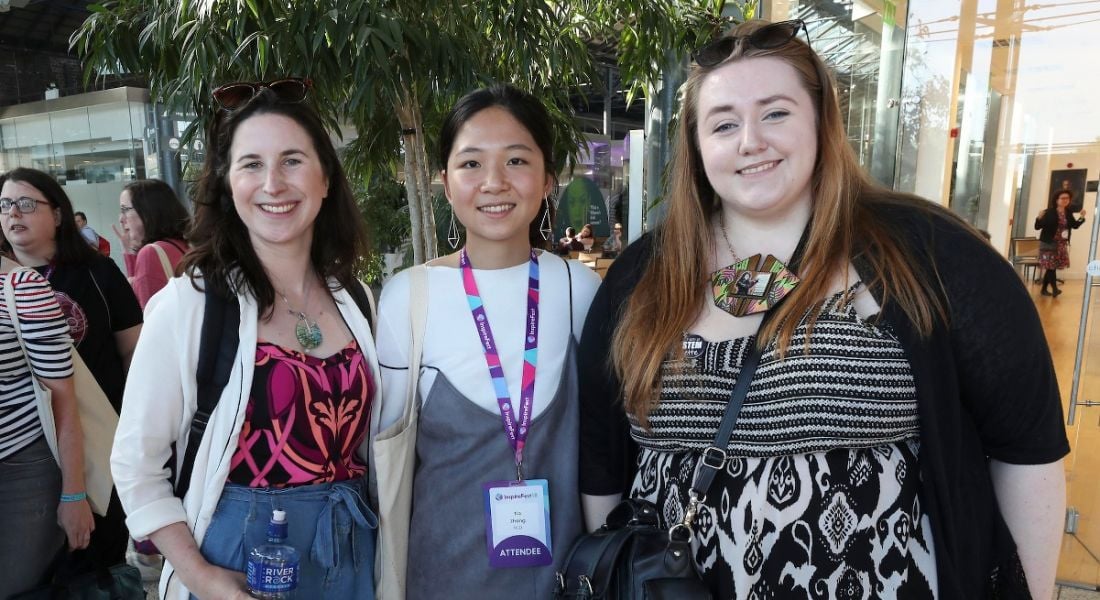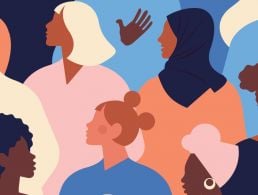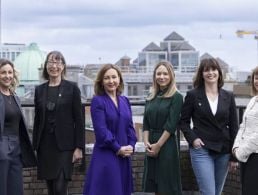Recent research suggests Ireland will need at least 5,000 additional tech graduates per year to meet projected job openings. Catrina Carrigan, director of Teen-Turn, says it is time we widened the net.
Technology Skills 2022: Ireland’s Third ICT Skills Action Plan reports that the supply of high-level ICT skills is no longer just a sectoral issue, but a national economic priority. Figures from research conducted by the Expert Group on Future Skills Needs for the report project that 72,864 new job openings will have become available for persons with high-level ICT skills by 2022.
For Ireland to meet up to 70pc of this annual expected demand, a target has been set of an additional 5,000 graduates with high-level ICT skills every year by 2022. With a recent Higher Education Authority report finding that almost half of third-level students studying computing don’t finish their degrees, where will these graduates come from?
While the proportion of women studying computer science and engineering is low at 18pc and 15pc, respectively, women are reportedly more likely to graduate than men, so getting more women to study computing and engineering will undoubtedly increase the number of graduates.
Teen-Turn has been tackling these issues over the past three years by supporting young high-potential women from disadvantaged and underrepresented areas, with the aim of inspiring and helping them to pursue careers in technology. Through summer work placements, after-school programmes and an alumni network, Teen-Turn has worked with more than 250 young women from all over Ireland to date.
Increasingly, attention has been drawn to the need for diversity and inclusion in the workforce, and Teen-Turn has organically managed to work with a diverse cohort of young women. 60pc of girls who took part in Teen-Turn placements last summer live in social housing. A further 13pc were in direct provision. 8pc were from the Traveller community and 2pc were classified as homeless.
An inclusive workplace must be inclusive for people of different abilities and needs. Workers with autism are a valuable but untapped talent source and Teen-Turn has managed to give placements to participants with autistic spectrum disorders every year since the programme started in 2016.
And it is not just about the placements. Teen-Turn works with young women ‘from Junior Cert to job’. In addition to summer placements, Teen-Turn runs after-school programmes and an alumni network. During the school year, the Technovation Challenge and Project Squad give participants the chance to create apps and conduct research after school.
The after-school programmes launched in 2018 and they have already been a great success, with participants going on to compete in the BT Young Scientist and the Tech4Good awards in London.
Last September, several of our alumni from the first cohort of Teen-Turn entered third-level education. All but one went on to study STEM (science, technology, engineering and maths) subjects.
The alumni network hosts meet-ups with fellow participants and includes mentors who are women working in STEM roles and career advisers to help with qualification completion and how to build a professional network.
Catrina Carrigan was appointed as a director of Teen-Turn in June 2018. She is an Intel Women in Technology Scholar studying for a bachelor’s in enterprise computing at Dublin City University (expected graduation 2020). She was one of the first advisers to join Teen-Turn shortly after it was founded in 2016, playing an important role in the design of the programme, which was named 2017’s EU Digital Impact Organisation of the Year.
Companies that would like to get involved or, indeed, mentors who would like to offer their services can find further information on the Teen-turn website.
Disclosure: Silicon Republic CEO Ann O’Dea is on the board of advisers of Teen-Turn




